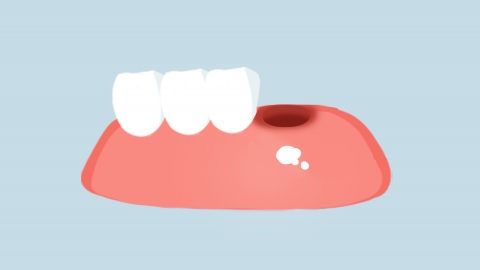Why does gum bleeding occur during the decompensation stage of liver dysfunction?
Generally, gum bleeding during the decompensated stage of liver dysfunction may be caused by reduced synthesis of coagulation factors, hypersplenism, decreased fibrinogen, impaired absorption of vitamin K, increased capillary fragility, and other factors. Patients should seek timely treatment at a regular hospital for symptomatic management. Detailed analysis is as follows:

1. Reduced synthesis of coagulation factors: The liver is the main site for synthesizing coagulation factors II, VII, IX, X, etc. During the decompensated stage of liver dysfunction, extensive damage to liver cells leads to decreased capacity for synthesizing coagulation factors, impairing the blood clotting process. Minor gum injuries can easily cause bleeding, which is difficult to stop.
2. Hypersplenism: Liver dysfunction in the decompensated stage is often accompanied by portal hypertension, leading to splenomegaly and hypersplenism. Hypersplenism destroys excessive platelets, reducing platelet count. When platelet levels are insufficient, bleeding easily occurs in areas such as the gums.
3. Decreased fibrinogen: Fibrinogen is synthesized by the liver and can be converted into fibrin during the coagulation process, forming a blood clot to seal the bleeding site. In the decompensated stage of liver dysfunction, the liver's ability to synthesize fibrinogen decreases, impairing the blood clotting and clot formation process, thereby increasing the risk of gum bleeding.
4. Impaired vitamin K absorption: The liver is involved in the absorption, utilization, and storage of vitamin K, which is an essential substance for synthesizing certain coagulation factors. During the decompensated stage of liver dysfunction, abnormal bile secretion and excretion affect vitamin K absorption, leading to insufficient synthesis of coagulation factors dependent on vitamin K, causing coagulation dysfunction and resulting in gum bleeding.
5. Increased capillary fragility: Liver damage affects the liver's nutritional support and repair function for blood vessel walls, leading to decreased capillary elasticity and increased fragility. The capillaries in the gum tissue are abundant and fragile; under minor stimulation such as chewing or brushing teeth, they are prone to rupture and bleeding.
Patients can follow medical advice to use medications such as entecavir tablets, telbivudine tablets, lamivudine tablets, and others for treatment. Meanwhile, patients should also maintain good oral hygiene habits and avoid factors such as trauma and infection that may worsen bleeding symptoms.









